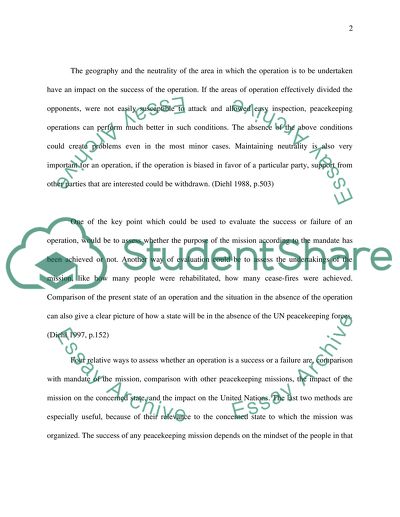Cite this document
(“United Nations peacekeeping Essay Example | Topics and Well Written Essays - 1750 words”, n.d.)
Retrieved from https://studentshare.org/sociology/1533849-united-nations-peacekeeping
Retrieved from https://studentshare.org/sociology/1533849-united-nations-peacekeeping
(United Nations Peacekeeping Essay Example | Topics and Well Written Essays - 1750 Words)
https://studentshare.org/sociology/1533849-united-nations-peacekeeping.
https://studentshare.org/sociology/1533849-united-nations-peacekeeping.
“United Nations Peacekeeping Essay Example | Topics and Well Written Essays - 1750 Words”, n.d. https://studentshare.org/sociology/1533849-united-nations-peacekeeping.


